It is important for hotel owners and other business leaders operating in the travel industry to keep up with the latest digital trends. Failure to do so can result in rivals gaining a competitive advantage and negatively impacting the customer experience, potentially harming your reputation. In this article, you will learn about six of the most important digital trends that those in the tourism industry must be aware of and adapt to if they will optimize business performance successfully.
Table of Contents:
- 18 Digital Trends in the Travel Industry in 2025
- 1. Chatbots & Artificial Intelligence (AI)
- 2. Eco-Focused Travel Technology
- 3. ChatGPT Usage
- 4. Recognition Technology
- 5. Big Data and the Use of Analytics
- 6. Blockchain Technology
- 7. Robots
- 8. Contactless Services
- 9. Personalization
- 10. Internet of Things (IoT)
- 11. Virtual Reality (VR) & Augmented Reality (AR)
- 12. Mobile Integration
- 13. Smart Homes for Short-Term Rentals
- 14. Ancillary Travel Services
- 15. Enhanced Wi-Fi Technology and 5G
- 16. Metaverse & Travel
- 17. Use of Paid Ads
- 18. Voice Search & Control
- More Articles About Digital Trends
18 Digital Trends in the Travel Industry in 2025
Discover the key digital trends in the travel industry that can be found in 2025.
1. Chatbots & Artificial Intelligence (AI)
One of the recent most exciting digital trends has been the increased usage of chatbots. This technology has been a revelation for customer service handling and can be utilized by those in the travel industry to provide rapid response times to basic queries. Crucially, chatbots can deliver swift replies even in the middle of the night.
This also fits in with the rise of artificial intelligence more generally. Perhaps the most notable example of this so far has been a combined project from Hilton and IBM, resulting in ‘Connie’ – an AI-driven customer service robot that is able to respond to human speech, learn from interactions, and provide tourist information.
Example: Create Your Bot Booking Travel
Find more detailed information and examples about artificial intelligence use cases in the travel industry in the article “How Artificial Intelligence is Changing the Travel Industry”.
2. Eco-Focused Travel Technology
Eco-focused travel tech is growing all the time. Specific examples of digital trends travel companies are using to boost sustainability include smart meters for measuring energy usage and IoT devices that allow for remote monitoring.
Ultimately, much of this digital technology is intended to make it easier for travel and tourism companies to operate in a sustainable way, such as by reducing energy usage. This is important because issues around sustainability and the environment are increasingly on the minds of travelers. As people become more aware of some of the harms associated with tourism, tourists are starting to look for alternative options that can reduce damage and make travel more ethical.
3. ChatGPT Usage
Few digital trends travel industry figures are grappling with compared to the rise of AI, and ChatGPT has emerged as a particularly strong example of its use within travel. Many companies are already experimenting with ChatGPT and similar tools for customer service, marketing content generation, data analysis, and translation services.
In the “ChatGPT Travel Guide: How the Travel Industry Can Benefit!“ article, you can explore ChatGPT in greater detail, learning how it can boost customer satisfaction, reduce costs, assist with bookings, and more.
4. Recognition Technology
Recognition technology is already being used in some hotels, with retina scanning and fingerprint scanning being used to unlock hotel rooms. This can improve the customer experience by eliminating the need to keep hold of a key card or use a physical key, which could be lost or stolen.
As technology advances and becomes more widely accepted, we can expect facial biometrics to automatically authorize payments or automatically check out of the hotel. This could dramatically reduce queues, freeing restaurant or reception staff to deal with customers requiring more hands-on assistance.
Example: Facial Recognition Check-in in Marriott China
In the article “Ways Facial Recognition Can Be Used in the Travel Industry“, find more detailed information and examples about facial recognition use cases in the travel industry.
5. Big Data and the Use of Analytics
Companies are collecting more data than ever, including vast amounts of customer data. When combined with analytics, this allows businesses to make evidence-based decisions, tailor experiences to individuals, and act on feedback.
For example, data collection and analytics can be used to understand what customers like about existing travel services and what they dislike. It can also be used to forecast customer demand, which can influence pricing strategies.
The rise of AI technology is one of the major digital trends travel industry companies are coming to terms with and it can be used within the field of analytics, extracting insights quickly and accurately, even without human involvement.
6. Blockchain Technology
Blockchain technology refers to the use of decentralized digital ledgers, with each of the individual entries connected to the previous entry. This allows transactions to be logged in a way that is transparent, secure and permanent.
The rise of blockchain technology has helped to underpin other digital trends in the travel industry, such as the use of cryptocurrencies and NFTs. Blockchain can also be used to operate a fully transparent customer loyalty scheme.
Businesses are still coming to terms with the many ways blockchain technology can benefit their own operations and the guest experience. However, it has the potential to increase trust and provide proof of transactions.
7. Robots
Out of all the emerging digital trends in the travel and tourism industry, one of the most exciting is using robots to perform intelligent tasks. This opens up a huge number of potential uses, ranging from customer service to data processing. An excellent example of the possibilities is the 1A-TA robot by Amadeus.
Powered by ‘deep learning’ technology, it is hoped that in the near future, travel agents and other tourism professionals will be able to use the robot as a digital assistant. The robot can find out information from customers while they sit in the waiting room, analyzing preferences, and intelligently recommending suitable destinations.
Example: Amadeus’ experimental travel agent’s assistant using the Pepper robot
Find more detailed information and examples about robot use cases in the travel industry in the article “Robots in the Travel Industry: Real-World Examples”.
8. Personalization
Regarding customer service, greater personalization ranks among the top requests, and those within the travel industry are taking note. Big data and machine-based learning both provide hotels with opportunities to deliver a more personalized experience for guests, and this trend will only grow in the years ahead.
Complex algorithms can be used to cross-sell products and make predictions about needs based on the behavior of customers from the same location, booking the same room at the same time of year. Technology within rooms can also be set up to greet guests by name. At the same time, hotels may even be able to provide automatically generated travel suggestions based on user interests and preferences selected during the booking process.
Example: Personalization Technologies for the Travel Industry
9. Contactless Services
Contactless services vary from relatively simple contactless payment systems, to much more advanced contactless digital entry systems. This technology also extends to virtual assistants that are operated using voice commands.
Often, contactless services allow for a seamless experience for travelers, such as arriving and checking in at an airport or hotel without dealing with staff. Many contactless systems use smartphone apps to great effect.
One of the major benefits of contactless services is they can be made available 24/7, even when staff are not available. In addition, there are potential hygiene benefits, which became notable during the COVID-19 pandemic.
10. Internet of Things (IoT)
Another digital trend in tourism management is ‘The Internet of Things.’ This refers to internet capabilities within everyday devices, allowing them to send and receive data. This is extremely useful within the tourism industry because it can be deployed to reduce costs and improve customer experience without human interjection automatically. According to the Internet of Things (IoT) in Travel and Tourism – Thematic Intelligence Report by Research and Markets, the IoT software market in travel and tourism is projected to reach $11 billion by 2027.
For example, smart energy systems can be used to automatically adjust room temperatures based on whether the rooms are occupied, eliminating wasted energy usage in empty rooms. Starwood Hotels has even used IoT technology to automatically adjust the strength of light bulbs based on the amount of natural light detected.
Example: Marriott, Legrand, Samsung – IoT Guestroom of the Future
Find more detailed information about the ‘Internet of Things’ in the travel industry in the article “How the Internet of Things (IoT) Can Benefit the Travel Industry”.
11. Virtual Reality (VR) & Augmented Reality (AR)
Finally, VR and AR are also increasingly being deployed within the travel and tourism industry. In the case of VR, several hotel chains are experimenting by allowing customers to experience a virtual recreation of their hotel rooms during the booking process before they ever physically step foot in them, enabling more informed choices.
Augmented reality, meanwhile, is typically deployed via a smartphone app and is used to enhance real-world environments through overlays. This can mean, for instance, that a user might point their phone at a restaurant and see customer reviews or point their phone at a hotel map and find additional information about nearby attractions. Other examples might include interactive virtual maps or 360 videos to present a resort, cruise ship, or tourism destination upfront.
Example: The world’s first Virtual Reality travel search and booking experience
Find more detailed information and examples about how virtual reality can benefit your business in the article “How Virtual Reality is Transforming the Travel Industry”.
12. Mobile Integration
In the age of smartphones, mobile integration is more important than ever before, and it is one of the digital trends that can be implemented most easily within the tourism industry. For instance, a dedicated mobile app for a hotel can be used to facilitate room bookings, restaurant reservations, room service requests, and spa appointments.
In addition to self-service functions, mobile integration can be used alongside beacon technology to send promotional messages based on physical location when they are most relevant. Furthermore, mobile apps can be combined with IoT technology (outlined later in this article) to allow guests to control room appliances from their phones.
13. Metaverse & Travel
The rise of the metaverse is among the most exciting digital trends in the travel industry, as this combines elements of virtual reality, augmented reality, and social media, allowing interactions to take place in digital environments. As a result, booking experiences can be enhanced, and travelers can gain inspiration much more easily. In the article “Metaverse Travel: How the Metaverse Will Change the Travel Industry“, you can learn more about the metaverse and how technology is transforming modern travel.
Table: Examples & Applications of Metaverse Concepts in the Travel Industry
| Concept | Applications in the Travel Industry | Potential Impact |
|---|---|---|
| Virtual Destination Experiences | Virtual tours of hotels, landmarks, and destinations using VR technology. | Enhances customer engagement and allows for exploration of destinations before booking. |
| Immersive Booking Platforms | Platforms allowing users to explore and book travel experiences within a virtual environment. | Improves the booking experience and decision-making process, potentially increasing conversions. |
| Digital Twins | Creating digital replicas of real-world locations and attractions for online exploration. | Provides a unique way to showcase destinations and amenities, improving marketing strategies. |
| Virtual Events and Conferences | Hosting events, meetings, or conferences within the metaverse, accessible globally. | Expands the reach and accessibility of events, reducing travel costs and environmental impact. |
| Training and Simulation | Using the metaverse for staff training and emergency preparedness simulations. | Enhances employee skills and safety procedures through realistic, immersive training scenarios. |
| Customer Service Avatars | AI-driven avatars providing information and assistance in the virtual space. | Offers innovative and interactive customer support, enhancing the overall service experience. |
| Brand Presence and Promotion | Establishing virtual spaces or experiences to promote travel brands and destinations. | Increases brand visibility and engagement, offering new marketing and partnership opportunities. |
| NFTs and Loyalty Programs | Using Non-Fungible Tokens (NFTs) for unique travel rewards and loyalty incentives. | Creates exclusive experiences and rewards, fostering customer loyalty and brand differentiation. |
14. Smart Homes for Short-Term Rentals
Smart homes can be broadly defined as homes that make use of smart technology. This may include options to remotely control elements like lighting, heating and air conditioning, or using an app to set optimal conditions.
Many of the smart digital trends the travel industry has been using in hotels are starting to make their way into the vacation rental space. This can make these rental properties a more attractive prospect.
Modern smart homes used in the travel and tourism industry should also provide free Wi-Fi and other digital services that help to facilitate remote work. This makes staying there viable for digital nomads and business travelers.
15. Ancillary Travel Services
Ancillary travel services are services outside of the core product being offered by a business. Examples of digital services in this category might include free Wi-Fi or access to business tools.
Some of the digital trends travel industry businesses should be aware of include self-service tools, the metaverse and the Internet of Things. Many ancillary services can serve as additional revenue sources, too.
For example, airline customers may pay to access digital services in a waiting lounge, or hotel customers may pay more to have access to high-speed internet and corporate facilities for meetings.
16. Enhanced Wi-Fi Technology and 5G
Enhanced Wi-Fi technology, such as the emerging Wi-Fi 7, is offering lower latency and faster connections for travelers. Meanwhile, 5G technology is helping to provide faster and more reliable mobile data service,s too.
This enhanced internet connectivity is among the most significant digital trends travel industry businesses are capitalizing on. When tourists and travelers have better connections, they can make use of online capabilities.
This provides travel and tourism companies with more options to use demanding features in smartphone apps, or deploy artificial intelligence, virtual reality and augmented reality tech, providing more advanced digital services.
17. Use of Paid Ads
Paid advertising is one of the most important digital trends for travel industry businesses because it allows precise audiences to be targeted and provides visibility on search engine results pages, websites, and mobile apps. Paid advertising can occur across platforms like Google Ads, YouTube, Facebook, Instagram, and Microsoft Advertising.
Social media advertising is a highly effective way to target specific groups of people and receive valuable analytics data. Google Ads, meanwhile, is an extensive advertising network covering Google’s search engine, many non-Google websites, YouTube, and various mobile apps. An especially common form of paid digital advertising is pay-per-click (PPC), where you pay the publishing platform (e.g. Google Ads) for each time your advert is clicked by a user.
18. Voice Search & Control
Voice search and voice control are digital trends that travel industry figures capitalize on in several interesting ways. For example, within hotels, voice control can be used within rooms to improve automation, while throughout the industry, voice search and voice control can be used to book travel products and services.
According to the Industry Specific Voice Search Statistics by synup, the global voice search market is projected to be $26.8 billion by 2025. In the “How Can Voice Control Benefit the Travel Industry?“ post, you can learn more about how voice control technology works and how businesses can use it to improve business results and customer experience.
Digital Trends in the Travel Industry FAQs
To avoid being left behind, those in the travel industry must keep up with the latest digital trends. By understanding and using some of the above technologies, you should be able to keep pace with rivals and even gain an edge over some while simultaneously improving the customer experience for your guests.
Did You Like This Article About Digital Trends in the Travel Industry?
You might also be interested in the following articles about digital trends in related industries:
- Key Digital Trends in the Hospitality Industry
- Hot Digital Trends in the Hotel Industry
- The Latest Technology Trends in the Hospitality Industry
- Hot Digital Trends in the Tourism Industry
- Key Technology Trends Emerging in the Travel Industry
More Tips to Grow Your Business
Revfine.com is the leading knowledge platform for the hospitality and travel industry. Professionals use our insights, strategies, and actionable tips to get inspired, optimize revenue, innovate processes, and improve customer experience.Explore expert advice on management, marketing, revenue management, operations, software, and technology in our dedicated Hotel, Hospitality, and Travel & Tourism categories.
This article is written by:
Hi, I am Martijn Barten, founder of Revfine.com. With 20 years of experience in the hospitality industry, I specialize in optimizing revenue by combining revenue management with marketing strategies. I have successfully developed, implemented, and managed revenue management and marketing strategies for individual properties and multi-property portfolios.

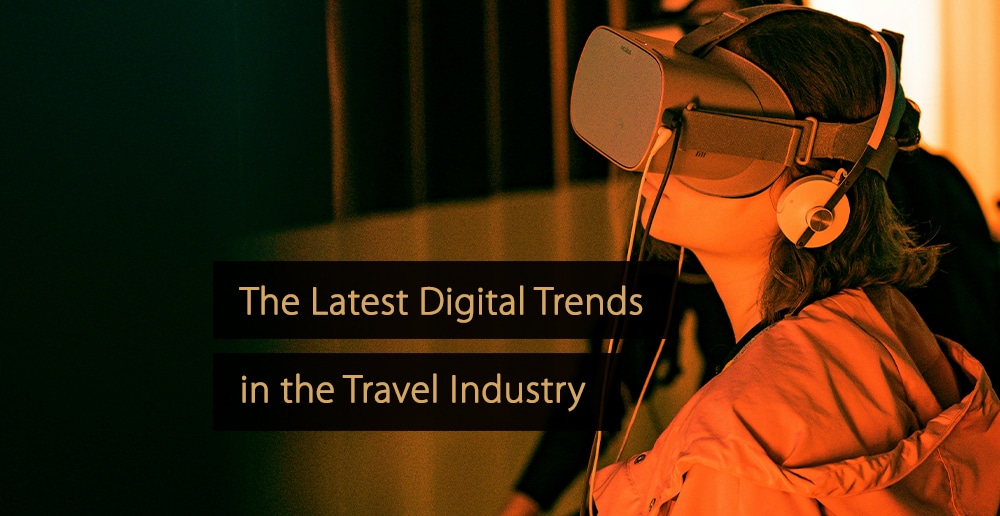
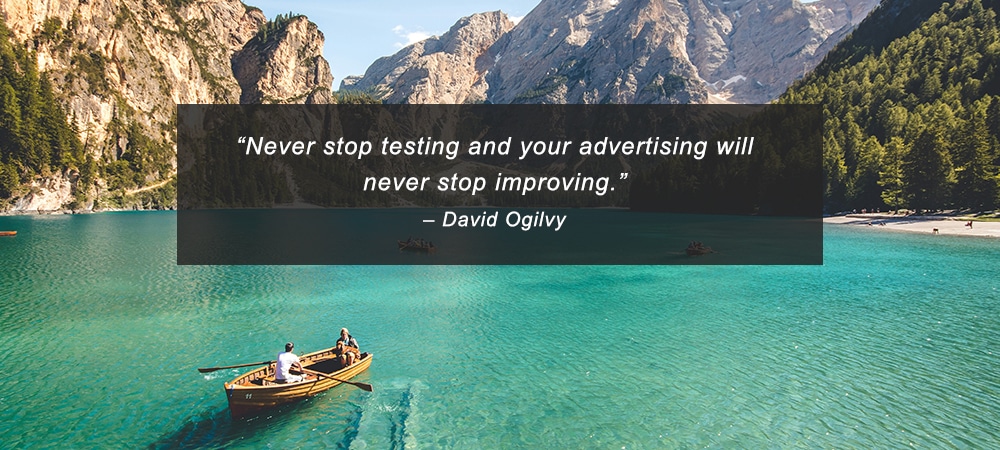

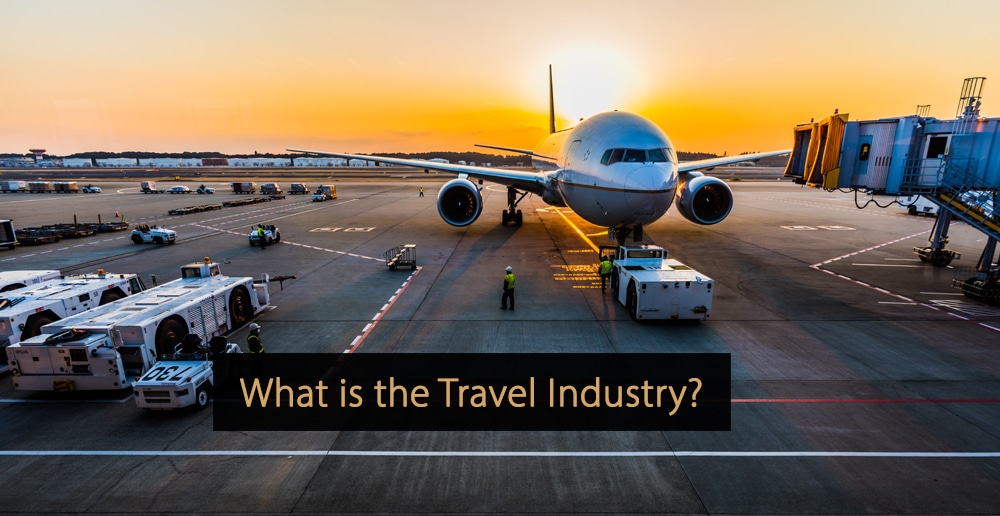
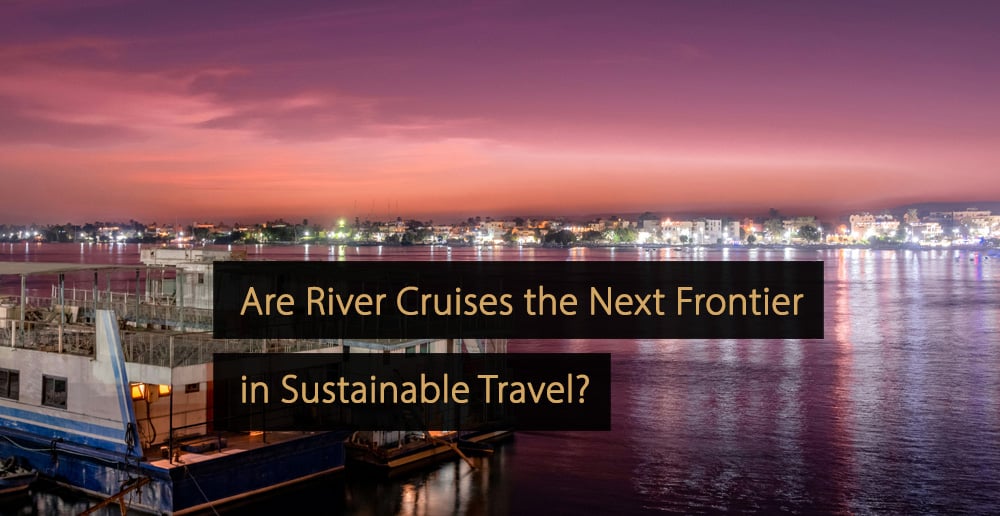

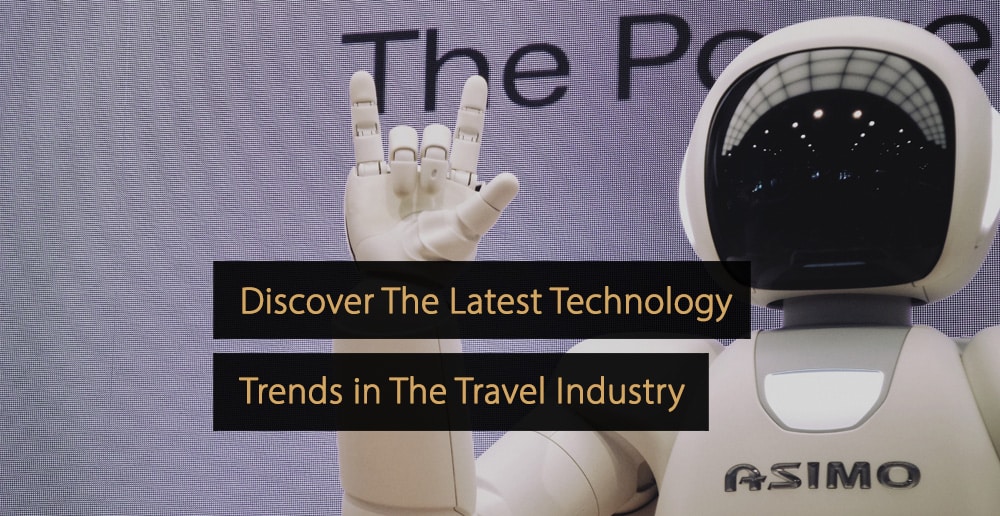


Leave A Comment